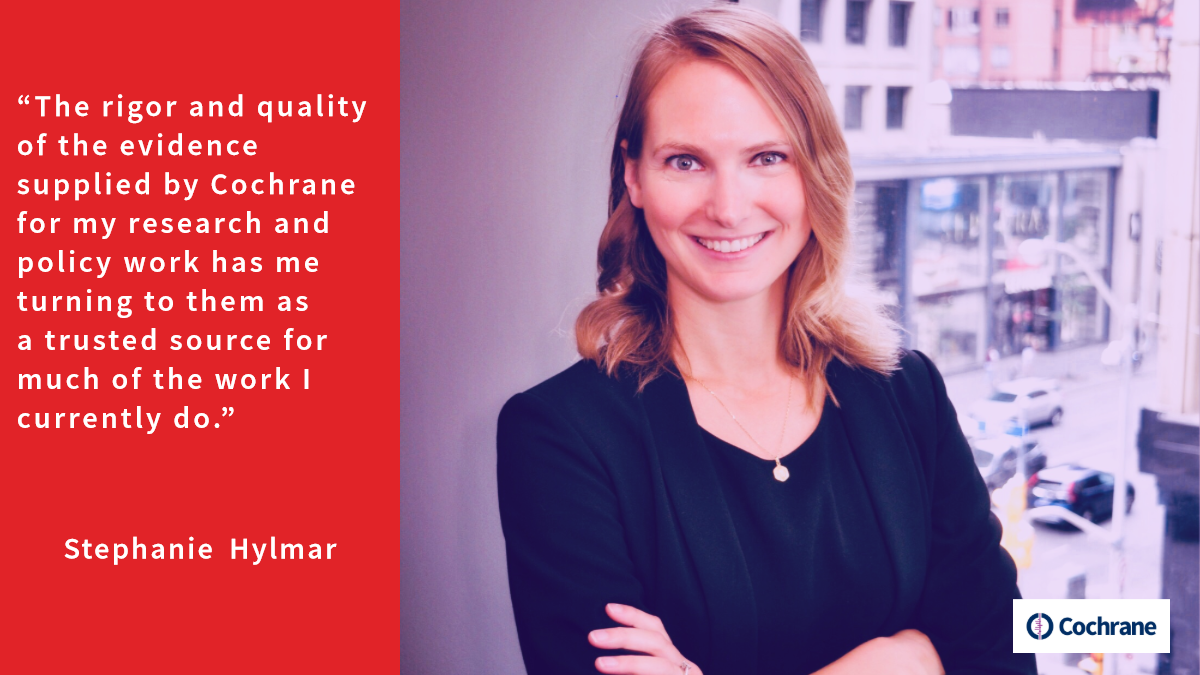
Cochrane does not make clinical recommendations, instead it provides unbiased and high-quality health evidence so that health decisions, policies, and clinical guidelines can be informed by the best available evidence. ‘Cochrane in the workplace’ series collects stories about how Cochrane evidence is being used in different workplace settings -such as teachers, guideline makers, and policy makers.
This collection will look specially at how people working on quality improvements are using Cochrane evidence.
Stephanie's story:

Name: Stephanie Hylmar @stephylmar
Position: Project Lead, Health System Performance, Health Quality Ontario (Ontario Health)
Location: Toronto, Ontario Canada
My name is Stephanie Hylmar, and I lead the conceptualization, development and implementation of digital and print public reporting products for Health Quality Ontario (HQO). HQO is an Agency of the Government of Ontario and serve as the Province’s advisor on the quality of health care in Ontario, Canada. In my role I manage a portfolio of reporting projects and special projects that aim to publicly report on and benchmark Ontario’s performance for a range of emergent health care issues and indicators. Our public reporting uses data from various local government and agency providers and in turn uses evidence to draw comparisons nationally and internationally on best practices and compare our performance to other Commonwealth and OECD countries. This public reporting is then used as a lever for funding quality improvement, policy initiatives and programs in the province.
I initially I started using Cochrane evidence reviews during my time in the academic sector and continued to refer to Cochrane evidence while working for a Provincial Think Tank. The rigor and quality of the evidence supplied by Cochrane for my research and policy work has me turning to them as a trusted source for much of the work I currently do and have done throughout my career. Were it not for Cochrane reviews, precious government resources would be spent doing the legwork on these reviews instead of acting on the evidence for vital policy and programming decisions.
Measuring and publicly reporting on how Ontario's health system is performing, and on health outcomes for people living in Ontario requires monitoring and benchmarking performance and drawing comparisons to other jurisdictions. In my work I need to understand the standards of care and performance and what constitutes best evidence. The use of best evidence in my, and my HQO colleagues’ work is critical to making comparisons and understanding performance in the Province in order to issue recommendations to our government that are grounded in sound research and best evidence.
Cochrane does not make clinical recommendations. ‘Cochrane Evidence in the Workplace' series collects stories about how professionals are using Cochrane evidence in non-clinical settings. Would you like to add your story of using Cochrane evidence? Please contact mumoquit@cochrane.org to share your story.

